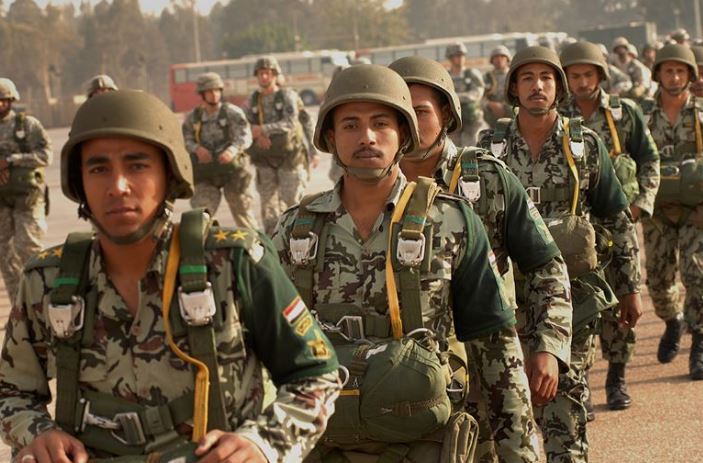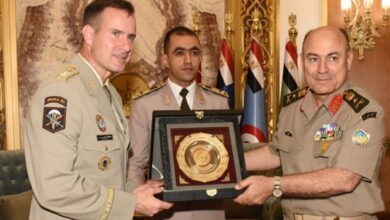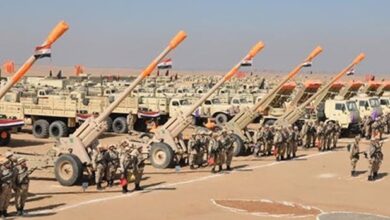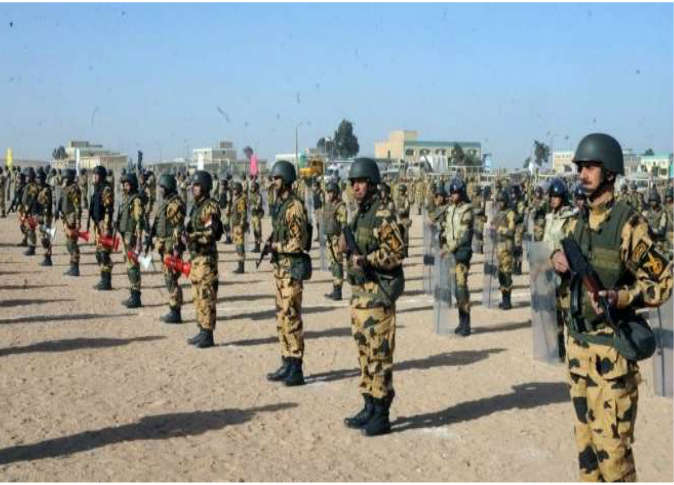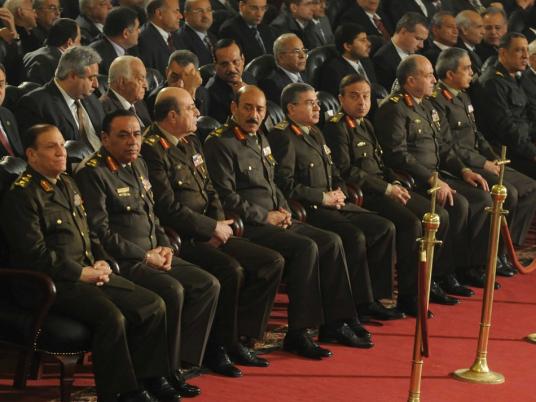
A report issued by a judicial fact-finding committee appointed by President Mohamed Morsy last June has proved serious violations of protesters' civil and political rights were carried out by Egypt’s military rulers during an 18-month transitional period following the ouster of the country’s strongman Hosni Mubarak.
The committee, formed mainly by judges, rights activists and families of the revolution’s victims, was tasked with investigating violations against protesters since nationwide protests erupted against Mubarak’s regime on 25 January 2011 until President Mohamed Morsy took office in June 2012.
According to activist and committee member Taqadum El-Khatib, the report was never made public as the committee only sent one copy of the report to the president. Khatib informed Egypt Independent that the report included detailed evidence against police officers and military leaders who either ordered or committed violations against protesters during the transitional period.
Critics have slammed the presidency for its reluctance to establish a system for transitional justice that would hold the country’s former military rulers accountable for violations against civilians.
Speculations are rife that the Brotherhood-affiliated regime granted a “safe exit” to the former leaders in exchange for the military’s silence over the Brotherhood's full control of state institutions.
“The report proved the involvement of the former military rulers in serious violations against civilians during the transitional period, either through direct orders to military leaderships in the field or they were set accountable through their responsibility as an executive authority,” Khatib explained.
He confirmed to Egypt Independent that the military rulers were proven guilty of various crimes against civilians, including the torture of protesters in the Egyptian Museum in 9 March 2011 and the sexual assault of female protesters — called forced virginity checks by much the media. The report also showed the military guilty of violently dispersing Tahrir protest on 8 April, the Maspero massacre in which 23 Coptic protesters were killed, the Mohammed Mahmoud clashes, the cabinet sit in clashes, and the Abbaseya clashes.
“In most of these cases, military rulers gave direct orders to kill, injure, detain and torture pro-democracy activists,” Khatib said.
“Former members of the then-ruling Supreme Council of Armed Forces leader of the Army’s Central District General Hassan al-Roweiny, Chief of Staff Lieutenant General Sami Anan, and head of the Military Police Hamdy Badeen were just a few of the many military leaders whose names were mentioned in the report,” he added.
Khatib mentioned that the evidence collected by the committee included videos explicitly showing military personnel beating and killing peaceful protesters, as well as important testimonies collected by current and former police leadership and intelligence members.
“The intelligence services were fairly cooperative, as well as the police and the former prosecutor general who helped us a lot in providing us with the service reports of police and army officers who were on duty when these crimes were committed as well as those who ordered them to commit these crimes,” he said.
For example, former minister of Interior Mansour al-Essawy told the committee some interesting remarks regarding Mohammed Mahmoud clashes that left tens dead and hundreds injured in November 2011 after police forces surprisingly dispersed a peaceful Tahrir Square sit-in one week before parliamentary elections.
Essawy, who was the minister of Interior at that juncture, told the committee members, according to Khatib, that orders to violently disperse the protest was given directly from the military’s Special Operations Division to the Head of Cairo Security Directorate.
“Essawy said that the orders overrode him as a minister and were directly given to the Cairo Security Directorate without his knowledge,” Khatib confirmed.
Flawed system of transitional justice
A rights pressure group named “We are behind you with the report” formed by committee member and head of Hisham Mubarak Law Center Ahmed Raghib is working to pressure authorities into presenting the report’s findings to the public.
“What we do is that we try to pressure the authorities into releasing the findings of the report whenever a court issues a decision in a crime listed in the report,” campaign member Heba Higazy tells Egypt Independent.
“We believe that the presidency is complicit in hiding the truth and obstructing the course of justice in order to cover up the crimes of the military. We are questioning why the report’s findings were not released to the public till now,” she added.
Prosecutor General Talaat Abdullah — appointed by President Mohamed Morsy following a contentious constitutional decree in which former top prosecutor was sacked — formed the Revolution's Protection Prosecution (RPP), which was ostensibly tasked with investigating crimes proved and recorded by the fact-finding committee’s report.
A “Revolution's Protection Law” was passed following the November constitutional decree. The intentions, according to authorities, were for it to translate into a plan for transitional justice, but critics slammed the law, labeling it a “new emergency law.”
The law, as drafted, is primarily concerned with investigating not only crimes against peaceful protesters, but also crimes pertaining to insulting the president, blocking roads and destroying public properties: crimes that critics say would endanger freedom of expression in the first place.
Chancellor Amr Fawzy, who was appointed by the current top prosecutor as the head of the RPP, tells Egypt Independent that the new body, however, practically does not exist.
“What [the RPP] does mainly is to conduct some supplementary investigations into the crimes listed in the fact finding committee’s report: crimes that are already being investigated by courts,” he said.
The prosecutor also confirmed that these investigations are done according to the normal Criminal Procedures Law, not the Revolution's Protection Law.
“The Revolution's Protection Law is only implemented in cases in which a court ruling was already issued and new evidence was found to restart the trial. Other than that, the law is not implemented,” he added.
With regard to cases in which investigations are already ongoing, the RPP refers the findings of the committee’s report to the court or the investigating judge looking into the case, according to Fawzy.
“An example of such a case was the Port Said case. The Revolution's Protection Prosecution referred the findings of the report to the court investigating the case, but the court did not take the report’s findings into consideration, although new evidence and new perpetrators were mentioned in the report,” Hegazy said.
“Unfortunately nothing obliges the judges to take the findings of this report into consideration,” she added.
Between justice and a possible military comeback
Observers believe that sending former military leaders to trial is a serious decision that the current ruling regime is not yet ready to take, especially that the relationship between the ruling Brotherhood and the military is not in perfect shape.
Remarks by the current Chief of Staff Sidqy Sobhy to Middle East News Agency (MENA) that the army will be ready to intervene if the situation deteriorates shows possible discontent by military leaders.
Despite the military’s denial of such remarks, former military general and security expert in Al-Ahram Center for Political and Strategic Studies, General Mohammed Kadri Saeid says these remarks are telling.
“The remarks say the army is unhappy, and any decision by the president to send former military rulers to trial means putting more gas on the fire,” Saeid said.
“The president, in such issues, should be cautious, especially that this issue would upset middle ranking army officers who are increasingly unhappy about their image during the last two years,” he added.
Saeid says that such decision is usually taken very carefully, through investigating the history of the military leaders in question. “Were these violations part from a well-known corrupt history or just a result of miscalculations during the transitional period?” Saeid questions.
“Such a move is dangerous and should be well-calculated, and I do not think the president has the ability, not even the will, to do this,” he said.

